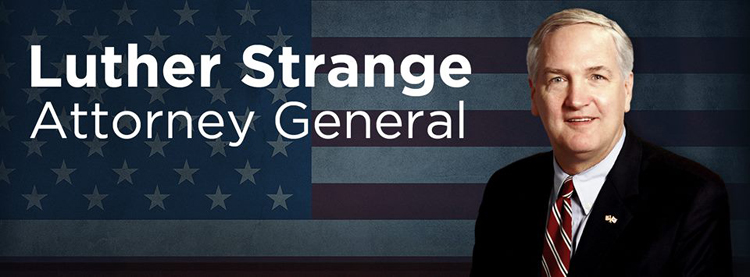Joining several other states across the country, Alabama’s attorney general has declared that daily fantasy sports (DFS) are considered illegal gambling and ordered the top operators in the industry to cease and desist.
Alabama Attorney General Luther Strange announced on Tuesday that after his office concluded that DFS contests “are in fact illegal gambling under Alabama law,” he’d sent both DraftKings and FanDuel cease-and-desist letters ordering them to end their real money operations in the state starting May 1. Illegal gambling is defined by Alabama as any contest where something of value is risked by participants in order to win a prize, regardless if a degree of skill is involved in the activity.
It was acknowledged by Strange that some skill was involved in DFS but the fact that participants don’t have any control over the performance of the athletes that they’ve added to their fantasy rosters, means that the contests depend “to a large degree on chance.” That, Strange said, is “the very definition of gambling under Alabama law,” according to CalvinAyre.
The announcement by Strange follows similar rulings by attorney generals in Illinois, Georgia, Hawaii, Mississippi, Vermont, Texas and New York. Those states made their decisions after the DFS insider trading scandal that broke in October. Maneuvering slightly differently, Nevada deemed DFS legal gambling but requires operators to apply for gambling licenses. In total, 12 states now consider DFS to be illegal gambling and have banned operations within their borders.
DraftKings and FanDuel have yet to respond to the announcement by Strange. Since the insider trading debacle in October, neither of the DFS industry leaders has followed a set pattern reacting to rulings such as the latest in Alabama. What has been witnessed up to this point by FanDuel and DraftKings is more of a willingness to exit states that provide less revenue to the company, while prolonging their departure in those with a higher bottom line. An example of that would be New York, where in spite of cease-and-desist orders issued by AG Eric Schneiderman on November 10 the companies remained in the state until late last month.
Just recently, Colorado House Bill 1404 was introduced and if successful a Colorado Office of Fantasy Sports would be created to regulate DFS in the state. Under the bill, operators of the games would be subject to licensing and background checks in order to weed out felons.



